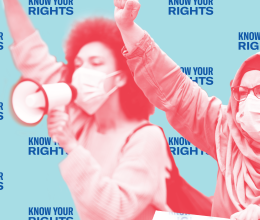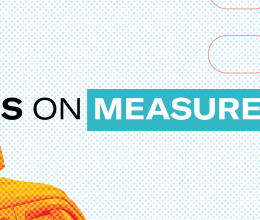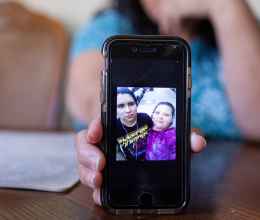
LOS ANGELES - In response to action taken by the ACLU of Southern California, the state Department of Corrections has concluded that excluding HIV positive inmates from its spousal family visitation program is discriminatory and contrary to federal law.
The decision, which was received by the ACLU this month, comes after a Southern California married couple, who has been together for six years, was excluded from family visits according to the Department's then-existing policy, even though the spouse agreed to sign a document acknowledging that she was aware of her husband's HIV status.
"We are pleased that the DOC recognized its mistake swiftly," said ACLU/SC staff attorney Christine P. Sun. "A blanket rule that discriminates against and isolates those with HIV sends the wrong message and is illegal. Cutting off inmates from their spouses just because they have HIV not only irreparably harms their relationship, but also wrongfully discriminates on the basis of disability."
The ACLU of Southern California was originally contacted by a Southern California woman last fall after she and her husband were denied an overnight family visit by the Department of Corrections because her husband, who has served two years of an 8-year sentence at a men's correctional facility, is HIV positive. Such visits are typically granted to low security inmates and are widely regarded as integral to keeping families intact after incarceration.
After the ACLU sent a demand letter and a public records act request on behalf of the couple, the DOC and its Office of Legal Affairs concluded that "to deny inmates participation in family visiting with their spouse because they have HIV is discriminatory," and violates United States Supreme Court precedent. The Department also agreed that from now on, it will generally permit inmates with HIV to have family visits with their spouses as long as the spouses sign confidential agreements that they are aware of the inmate's health.
"This is an important decision because it recognizes that people with HIV, with the proper medical care, can lead long and productive lives," said Rosemary C. Veniegas, the associate director at an HIV center at the UCLA School of Medicine. " As most public health organizations now recognize, couples where one partner has HIV can be very careful and take precautions to contain the disease."






